|
Books Should Be Free Loyal Books Free Public Domain Audiobooks & eBook Downloads |
|
|
Books Should Be Free Loyal Books Free Public Domain Audiobooks & eBook Downloads |
|
Fiction |
|---|
|
Book type:
Sort by:
View by:
|
By: Thomas de Quincey (1785-1859) | |
|---|---|
 Miscellaneous Essays
Miscellaneous Essays
The Hunter Thompson of the 19th Century, de Quincey is best known for his Confessions of an English Opium Eater (an activity shared with his hero, Samuel Coleridge, much to Wordsworth’s dismay). However, de Quincey’s literary genius is best captured in his essays, and, according to Wikipedia: His immediate influence extended to Edgar Allan Poe, Fitz Hugh Ludlow and Charles Baudelaire, but even major 20th century writers such as Jorge Luis Borges admired and claimed to be partly influenced by his work. | |
By: W. W. Jacobs (1863-1943) | |
|---|---|
 The Monkey's Paw
The Monkey's Paw
An eerie supernatural story, The Monkey's Paw follows the White family as they come to realize that nothing in life comes without a price or at the simple push of a button. First published in 1902, the short story powerfully suggests that one should not interfere with the course of nature, as cheating fate can result in unforeseen consequences that leave one with more than they bargained for. Set in England, the tale opens on a dark and stormy night inside Laburnam Villa, home to Mr. and Mrs... | |
By: Selma Lagerlöf (1858-1940) | |
|---|---|
 The Wonderful Adventures of Nils
The Wonderful Adventures of Nils
Selma Lagerlöf was born in Vaermland, Sweden, in 1858 and enjoyed a long and very successful career as a writer, receiving the Nobel-Price in Literature in 1909. She died in Vaermland in 1940. The Wonderful Adventures of Nils (Orig. Nils Holgerssons underbara resa genom Sverige) is a famous work of fiction by Selma Lagerlöf, published in two parts in 1906 and 1907. The background for publication was a commission from the National Teachers Association in 1902 to write a geography reader for the public schools... | |
 Invisible Links
Invisible Links
Selma Lagerlöf was born in Vaermland, Sweden, in 1858 and enjoyed a long and very successful career as a writer, receiving the Nobel-Price in Literature in 1909. She died in Vaermland in 1940. Invisible Links (Osynliga länkar) is a collection of short stories with an underlying theme about the links that influence and guide people’s actions and lives. It was first published in 1894 and the English translation in 1895. The stories are often set in Lagerlöf’s Vaermland, but they also depict legends and history of Sweden, and some have connections to other works by Lagerlöf. Invisible Links is a good introduction to the writings of Selma Lagerlöf. | |
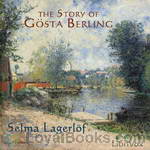 The Story of Gösta Berling
The Story of Gösta Berling
The Story of Gösta Berling" was published in Sweden in 1894 and immediately brought its author into prominence.The tales are founded on actual occurrences and depict the life in the province of Värmland at the beginning of the 19th Century century. Värmland is a lonely tract in the southern part of Sweden, and has retained many of its old customs, while mining is the principal industry of its sparse population. It consists of great stretches of forest, sloping down to long, narrow lakes, connected by rivers.Miss Lagerlöf has grown up in the midst of the wild legends of her country, and, deeply imbued with their spirit, interprets them with a living force all her own. | |
 The Emperor of Portugallia
The Emperor of Portugallia
Selma Lagerlöf was born in Vaermland, Sweden, in 1858 and enjoyed a long and very successful career as a writer, receiving the Nobel-Price in Literature in 1909. She died in Vaermland in 1940. The Emperor of Portugallia was first Published 1914 in Sweden, and 1916 in English, translated by Velma Swanston Howard. The Story i set in Vaermland around 1860 or 1870. In the centre is Jan of Ruffluck Croft. He loves his daughter more than anything, but when she moves to Stockholm and never sends a word home about her doings, he sinks into a dream-world where she is a noble Empress of Portugallia... | |
By: Alexander Pope | |
|---|---|
 An Essay on Criticism
An Essay on Criticism
An Essay on Criticism was the first major poem written by the English writer Alexander Pope (1688-1744). However, despite the title, the poem is not as much an original analysis as it is a compilation of Pope’s various literary opinions. A reading of the poem makes it clear that he is addressing not so much the ingenuous reader as the intending writer. It is written in a type of rhyming verse called heroic couplets. | |
By: Sholem Aleichem (1859-1916) | |
|---|---|
 Jewish Children (Yudishe Kinder)
Jewish Children (Yudishe Kinder)
Although written from a child’s perspective, this is not a kids book but a series of funny, poignant, and sometimes disturbing stories about life in a late 19th-century Russian-Jewish village — the world of my grandparents. Sholem Rabinovich (1859-1916) was born in Pereiaslav, Ukraine and later immigrated to New York. His short stories about Tevye and his daughters were freely adapted into the musical FIDDLER ON THE ROOF. Rabinovich’s will contained the following injunction: “Let my name be recalled with laughter or not at all.” His translator, Hannah Berman, was Irish of Lithuanian descent.Some of these stories may be too intense for younger children. | |
By: William Morris (1834 — 1896) | |
|---|---|
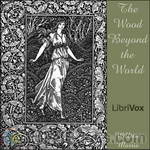 The Wood Beyond the World
The Wood Beyond the World
MANUAL OF SURGERY, OXFORD MEDICAL PUBLICATIONSBY ALEXIS THOMSON, F.R.C.S.Ed.PREFACE TO SIXTH EDITION Much has happened since this Manual was last revised, and many surgical lessons have been learned in the hard school of war. Some may yet have to be unlearned, and others have but little bearing on the problems presented to the civilian surgeon. Save in its broadest principles, the surgery of warfare is a thing apart from the general surgery of civil life, and the exhaustive literature now available on every aspect of it makes it unnecessary that it should receive detailed consideration in a manual for students... | |
 Völsungasaga
Völsungasaga
The 13th century Icelandic Völsungasaga is usually read by people studying the Poetic Edda or Wagner’s Ring – which obscures the fact it is a much better story than practically everything derived from it. A riddle-telling dragon, a broken sword, a hooded mysterious wanderer – cannibalism, incest, mutilation, and sensitive hearts. This is R-rated Tolkien – and the unashamedly archaic Magnússon-Morris translation is up for the adventure.Passages spoken in Old Norse are taken from the edition of Sophus Bugge, Berlin, 1891. | |
 News From Nowhere
News From Nowhere
News from Nowhere (1890) is a classic work combining utopian socialism and soft science fiction written by the artist, designer and socialist pioneer William Morris. In the book, the narrator, William Guest, falls asleep after returning from a meeting of the Socialist League and awakes to find himself in a future society based on common ownership and democratic control of the means of production. In this society there is no private property, no big cities, no authority, no monetary system, no divorce, no courts, no prisons, and no class systems... | |
 The Well at the World's End, Book 1: The Road unto Love
The Well at the World's End, Book 1: The Road unto Love
The Well at World's End is thought to be one of the first examples of an entirely fictional fantasy world, and has greatly influenced later fantasy writers such as C.S. Lewis and J.R.R. Tolkien. The book follows the travels of Ralph, a prince of a tiny country, as he disobeys his fathers wishes and runs away from home to adventure in the world, and seek out the fabled Well at World's End, said to grant eternal youth to those who drink from it. | |
 The House of the Wolfings
The House of the Wolfings
William Morris (1834-1896) was a writer, illustrator and medievalist from the Romantic period and associated with other renowned authors of the time such as Dante Rossetti. His fascination with ancient Germanic and Norse people dominated his writings, the first to be set in an entirely invented fantasy world and which helped to establish the fantasy genre. The House of Wolfings (1890), some argue, is a demonstration of Morris' socialism as the society described, though not an utopia, is clan-based, elects leaders and makes decisions in clan tribal meetings... | |
 A Dream of John Ball; and, a king's lesson
A Dream of John Ball; and, a king's lesson
| |
 The World of Romance being Contributions to The Oxford and Cambridge Magazine, 1856
The World of Romance being Contributions to The Oxford and Cambridge Magazine, 1856
| |
By: Grace Livingston Hill (1865-1947) | |
|---|---|
 The Best Man
The Best Man
Cyril Gordon, a young and handsome secret service agent is running from pursuers who desperately want the information he holds. He hides out from them in a church, and then finds himself married to a woman he’s never seen before. A sweet and sometimes, funny, romance, with several exciting chases. | |
 The Enchanted Barn
The Enchanted Barn
The Hollisters, a bright, spirited, wholesome family, are compelled to move into the country. After many efforts to secure a home, Shirley, eldest of the Hollisters, contrives a way out by renting a magnificent old stone barn at a ridiculously low price, transforming it into a house. The owner of the barn is not an ordinary landlord, as you will see, for he is a young man with fine ideals, and he is not content with establishing Shirley and her family in the quaintly beautiful old place, but makes the world a much happier place to live in for all of them. | |
 A Little Servant
A Little Servant
A short story of a little girl who is Jesus’ servant and how she won the heart of an unbelieving gardener. | |
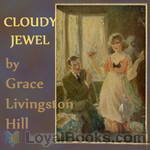 Cloudy Jewel
Cloudy Jewel
Julia Cloud, the oldest--and most responsible--child of her family, helped raise her four siblings due to their mother's long-time illness and father's death. After faithfully nursing two ill brothers (who died), she then cared for her invalid mother for many years. When Julia's mother passes on, her only surviving sibling Ellen fully expects--and nearly demands--that her spinster sister come live with her family. But to earn her keep, Julia must be their live-in housekeeper and babysitter for Ellen's four children. But Julia's college-age niece and nephew arrive unexpectedly from California and offer Aunt Cloudy Jewel a surprise opportunity she never expected in her wildest dreams. | |
 Marcia Schuyler
Marcia Schuyler
A compelling love triangle. Marcia is young & sweet. Her older sister Kate is vain & selfish. Marcia deeply admires the man that Kate is to marry: handsome & respected David Spafford. But on the eve of the wedding, Kate elopes with another man. Marcia is there when the note is found...the note that effectively breaks David's heart. Out of pity for his situation, Marcia offers to take Kate's place, in order to save David from humiliation. She grows in love for him, all the while aware that he's still grieving for his lost Kate. What will happen when Kate returns, fully intending to get David back? Will Marcia have the strength to fight for the man she now loves? | |
 The Girl from Montana
The Girl from Montana
Young Elizabeth, left orphaned by an evildoer who murders her last brother, flees Montana on horseback to find her remaining relatives in the East. Her social and spiritual journey leads her through harrowing encounters, struggles between good and evil, romance and, ultimately, love and fortune. Classic Grace Livingston Hill. (Introduction by Gail Mattern) | |
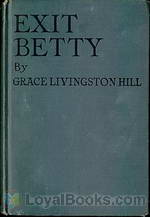 Exit Betty
Exit Betty
| |
By: Ernest William Hornung (1866-1921) | |
|---|---|
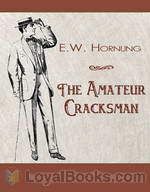 The Amateur Cracksman
The Amateur Cracksman
“I’d tasted blood, and it was all over with me. Why should I work when I could steal? Why settle down to some humdrum uncongenial billet, when excitement, romance, danger and a decent living were all going begging together” – A. J. Raffles, The Ides of March. | |
By: William Clark Russell (1844-1911) | |
|---|---|
 The Frozen Pirate
The Frozen Pirate
Sailing adventure with storms, icebergs, shipwrecks, treasure, and the reawakening of a pirate frozen in suspended animation for nearly fifty years | |
By: Irvin S. Cobb (1876-1944) | |
|---|---|
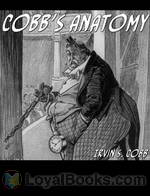 Cobb's Anatomy
Cobb's Anatomy
Irvin Shrewsbury Cobb was born on June 23, 1876. At seventeen years of age, he began writing for the Paducah Daily News, his hometown paper. At nineteen he became the managing editor; up to that point, our nation’s youngest. He worked as a columnist, a humorist and an author. But ‘horror,’ and ’short stories,’ are not why he is remembered. He is remembered because he was, and still is, funny. And although he is now dead–he died March 11, 1944–this work “Cobb’s Anatomy,” among others, has left an indelible mark upon mankind: a smile. | |
 One Third Off
One Third Off
Irvin Shrewsbury Cobb (June 23, 1876–March 11, 1944) was an American author, humorist, and columnist who lived in New York and wrote over 60 books and 300 short stories. Cobb has been described as “having a round shape, bushy eyebrows, full lips, and a triple chin. He always had a cigar in his mouth.” This book is a hilarious account of Cobb’s attempts at weight-loss. | |
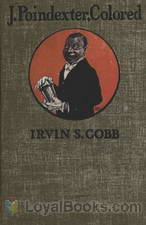 J. Poindexter, Colored
J. Poindexter, Colored
This comic novel relates the first-person adventures in New York City of Jefferson Poindexter, personal assistant to Cobb's famous Judge Priest, while the judge is vacationing abroad. (Introduction by Grant Hurlock) | |
By: William Dean Howells (1837-1920) | |
|---|---|
 Indian Summer
Indian Summer
In his novel Indian Summer, William Dean Howells presents a mellow but realistic story that has the complete feel of that delightful time of the year, although the plot actually spans several seasons. The Indian summer aspect applies to a sophisticated gentleman, Theodore Colville, who has just entered his middle years as he returns to a scene, Florence, Italy, that played an important part in his early manhood. It was here twenty years earlier that he first fell in love, seemingly successfully until a sudden and harsh rejection... | |
 Christmas Every Day and Other Stories Told for Children
Christmas Every Day and Other Stories Told for Children
Five short delightful stories for children, told in the voice of "the papa" to "the girl" and "the boy." William Dean Howells (March 1, 1837 – May 11, 1920) was an American realist author and literary critic. Nicknamed "The Dean of American Letters", he was particularly known for his tenure as editor of the Atlantic Monthly as well as his own prolific writings, including the Christmas story "Christmas Every Day" and the novel The Rise of Silas Lapham. (Reader’s Note for story 3: A pony engine is a small locomotive for switching cars from one track to another.) | |
 Annie Kilburn
Annie Kilburn
After 11 years in Rome, Annie Kilburn returns home to the US after the death of her father. But the home she knew is dramatically changed in many ways. She starts to work with sick children, and finds herself attached to them, and to the minister who helps her, Mr. Peck. | |
 Hazard of New Fortunes
Hazard of New Fortunes
Howell’s novel is set in New York of the late nineteenth century, a city familiar to readers of Edith Wharton and Henry James. Basil March, a businessman from Boston of a literary bent, moves with his family to New York to edit a new journal founded by an acquaintance. Its financial support, however, comes from a Mr. Dryfoos, a Pennsylvania Dutch farmer suddenly become millionaire by the discovery of natural gas on his property, and now living in New York with his family in a style he hopes will befit his new wealth... | |
 A Modern Instance
A Modern Instance
| |
 The Landlord at Lion's Head
The Landlord at Lion's Head
| |
 Ragged Lady
Ragged Lady
| |
 Buying a Horse
Buying a Horse
| |
 Dr. Breen's Practice
Dr. Breen's Practice
| |
 A Fearful Responsibility and Other Stories
A Fearful Responsibility and Other Stories
| |
 The Quality of Mercy
The Quality of Mercy
| |
 The Sleeping-Car, a farce
The Sleeping-Car, a farce
| |
 April Hopes
April Hopes
| |
 A Chance Acquaintance
A Chance Acquaintance
| |
 Coast of Bohemia
Coast of Bohemia
William Dean Howells is at his iconoclastic best in this exploration of bourgeois values, particularly in the clash between respectable society and the dubious bohemian world of Art and Poetry. Cornelia Saunders has everything going for her in her middle-class world: comfort, good looks, attentive young men. She seems willing to risk it all for the sake of what might be an artistic Gift, venturing with great trepidation to put her foot over the line into Bohemia to see if it might be the thing for her. Skewering the conventions of sentimental literature as usual, Howells keeps the reader guessing to the end as to the fate of Cornelia and her Gift. | |
 Boy Life Stories and Readings Selected From The Works of William Dean Howells
Boy Life Stories and Readings Selected From The Works of William Dean Howells
| |
 A Psychological Counter-Current in Recent Fiction
A Psychological Counter-Current in Recent Fiction
| |
 A Boy's Town
A Boy's Town
| |
 The Story of a Play A Novel
The Story of a Play A Novel
| |
 The Flight of Pony Baker A Boy's Town Story
The Flight of Pony Baker A Boy's Town Story
| |
 An Open-Eyed Conspiracy; an Idyl of Saratoga
An Open-Eyed Conspiracy; an Idyl of Saratoga
| |
 Fennel and Rue
Fennel and Rue
| |
 Standard Household-Effect Company, the (from Literature and Life)
Standard Household-Effect Company, the (from Literature and Life)
| |
 The Kentons
The Kentons
| |
 Staccato Notes of a Vanished Summer (from Literature and Life)
Staccato Notes of a Vanished Summer (from Literature and Life)
| |
By: Alfred Russel Wallace (1823-1913) | |
|---|---|
 Is Mars Habitable?
Is Mars Habitable?
In 1907 Wallace wrote the short book Is Mars Habitable? to criticize the claims made by Percival Lowell that there were Martian canals built by intelligent beings. Wallace did months of research, consulted various experts, and produced his own scientific analysis of the Martian climate and atmospheric conditions. Among other things Wallace pointed out that spectroscopic analysis had shown no signs of water vapor in the Martian atmosphere, that Lowell’s analysis of Mars’ climate was seriously flawed and badly overestimated the surface temperature, and that low atmospheric pressure would make liquid water, let alone a planet girding irrigation system, impossible. | |
By: Fanny Dickerson Bergen (1846-1924) | |
|---|---|
 Current Superstitions
Current Superstitions
No matter how enlightened, chances are you’ve been raised around superstitious lore of one kind or another. Fanny Dickerson Bergen was one of the original researchers of North American oral traditions relating to such key life events and experiences as babyhood and childhood, marriage, wishes and dreams, luck, warts and cures, death omens and mortuary customs, and “such truck,” as Huck Finn would say. You’ll be surprised at how many of these old saws you’ll know. Here’s a quote from... | |
By: Carl Sandburg (1878-1967) | |
|---|---|
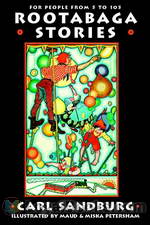 Rootabaga Stories
Rootabaga Stories
Carl Sandburg is beloved by generations of children for his Rootabaga Stories and Rootabaga Pigeons (which is not in the public domain), a series of whimsical, sometimes melancholy stories he originally created for his own daughters. The Rootabaga Stories were born of Sandburg’s desire for “American fairy tales” to match American childhood. He felt that the European stories involving royalty and knights were inappropriate, and so populated his stories with animals, skyscrapers, trains, corn fairies, and other colorful characters. | |
By: Ernest Bramah (1868-1942) | |
|---|---|
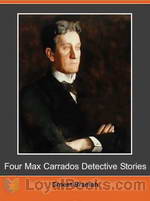 Four Max Carrados Detective Stories
Four Max Carrados Detective Stories
Ernest Bramah is mainly known for his ‘Kai Lung’ books – Dorothy L Sayers often used quotes from them for her chapter headings. In his lifetime however he was equally well known for his detective stories. Since Sherlock Holmes we have had French detectives, Belgian detectives, aristocratic detectives, royal detectives, ecclesiastical detectives, drunken detectives and even a (very) few quite normal happily married detectives. Max Carrados was however probably the first blind detective. | |
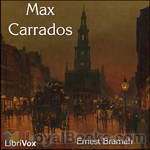 Max Carrados
Max Carrados
Max Carrados is a blind detective who has developed his own remaining senses to a superior level and who has enlisted the superior observations skills of his butler to fill in for any deficiency of his own. His visual deficiency is no obstacle to solving the most difficult cases. As with some better known sleuths, Mr. Carrados' feats amaze, entertain and satisfy. | |
 Wallet of Kai Lung
Wallet of Kai Lung
The Wallet of Kai Lung is a collection of fantasy stories by Ernest Bramah, all but the last of which feature Kai Lung, an itinerant story-teller of ancient China. The collection's importance in the history of fantasy literature was recognized by the anthologization of two of its tales in the celebrated Ballantine Adult Fantasy Series. | |
By: Mary Godolphin (1781-1864) | |
|---|---|
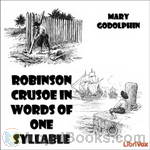 Robinson Crusoe in Words of One Syllable
Robinson Crusoe in Words of One Syllable
Mary Godolphin was the pseudonym of Lucy Aikin who undertook translating great literature into single-syllable words so that young readers could enjoy plots that were considerably more interesting than, say, the McGuffey readers of the 1880’s or the “Dick and Jane” primers of the 1950s (still around today as “decodable readers” in elementary schools). She produced this volume based on Daniel Defoe’s most famous work, considered by many to be the first English novel (1719). She also rendered Bunyan’s Pilgrim’s Progress and Wyss’ Swiss Family Robinson, which she translated as well. | |
By: Francis Pharcellus Church (1839-1906) | |
|---|---|
 Yes, Virginia, There Is A Santa Claus
Yes, Virginia, There Is A Santa Claus
“Is There A Santa Claus?” was the headline that appeared over an editorial in the September 21, 1897 edition of the New York Sun. The editorial, which included the response of “Yes, Virginia, There is a Santa Claus,” has become an indelible part of popular Christmas lore in the United States. | |